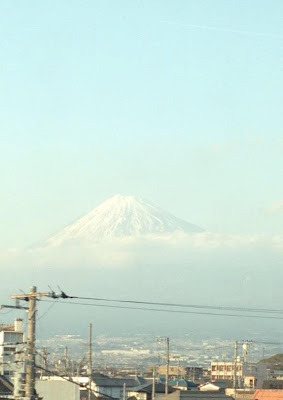Tosh Berman's Blog, page 262
April 2, 2013
"Sparks-Tastic" West Coast Reading Tour April 2013
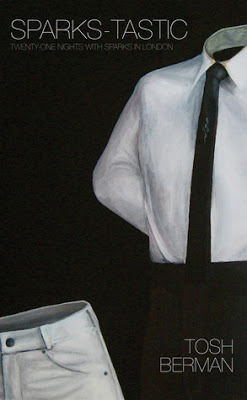
In 2008, Tosh Berman—author and publisher of TamTam Books—got on a plane with a single motive: “Sparks Spectacular.” It had been announced that the band Sparks would perform all twenty-one of their albums in a succession of twenty-one nights in London…a monumental experience for any Sparks fanatic. Part travel journal, part personal memoir, Berman takes us through the streets of London and Paris, observing both cities’ history and culture through the eye of an obsessive Sparks fan’s lens. Including album-by-album reviews of all twenty-one albums and beyond, Sparks-Tastic defines a place and time in music history that’s too defining to be ignored.
Tosh Berman, author of "Sparks-Tastic: Twenty-One Nights With Sparks in London" (A Barnacle Book) will be doing a small West Coast Reading & Signing Tour in April 2013. The dates so far:
Tuesday April 23rd; 7 PM
Stories Books and Cafe
1716 West Sunset Boulevard
Los Angeles (Echo Park), CA 90026-3225
Phone number 213-3733
http://www.storiesla.com/#home
Wednesday April 24th; 7 PM
City Lights Booksellers
261 Columbus Avenue at Broadway
San Francisco, CA 94133
Phone Number 415-362-4921
http://www.citylights.com/info/?fa=events
Thursday April 25th; 7:30 PM
Powell's City of Books on Burnside
1005 W Burnside
Portland, OR
Phone Number 800-878-7323
http://www.powells.com/calendar.html
Monday April 29; 7 PM
Book Soup
8818 Sunset Blvd
West Hollywood, CA 90069
Phone number 310-659-3110
http://www.booksoup.com/author-events?page=1
Published on April 02, 2013 08:21
March 31, 2013
"Silent Echoes: Discovering Early Hollywood Through The Films of Buster Keaton
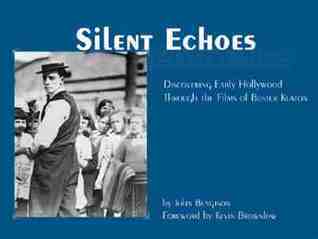
Probably one of the most obsessive books ever. John Bengtson located every location Buster Keaton shot his films on, and re-photographed it, usually at the same angle or shot of the original film. So what we have is a book that is about Keaton and how he used real locations for his classic films, plus a visual history of Los Angeles, and what that location looks like now.
It's a stunning way of looking at space and what happens to that space. Strange enough a lot of the locations haven't changed, and some of course one would never recognize it in the film. This book is an extreme tour of a region via the eyes of Keaton and much later Mr. Bengston. The amount of work he did for this book is pretty much jaw-dropping 'wow.'
Published on March 31, 2013 12:36
March 30, 2013
David Bowie's "The Next Day" Vinyl
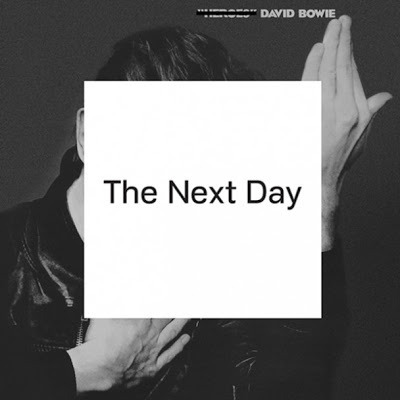
I think most of us by now has had heard David Bowie's "The Next Day." What strikes me, after the hype and firework like surprise of its existence, is that it's a classic Bowie album. It tends to look back, look at the present, and then into the future. There are no surprises, except the fact that Bowie is 66 years old and still has things to say. And he says it well.
Lyric-wise, this is Bowie's strongest work. It has the classic elements of the Bowie of old, but here he adds a certain weight to the songs. There's the obvious 'older' retrospective of one's past in "Where Are We Now." But the album speaks of a historical past as well. Here is one is reminded of Scott Walker's later work with respect in dealing with history in a song setting. I would think "The Next Day" wouldn't exist if not for Scott's current music. Not a copy mind you, but more of riffing on another artist's work. Some might say that this is Bowie the vampire sucking out the blood of another artist, but that's stupid. Bowie is like a jazz musician covering a standard. He adds to the mix and makes the work his own, even though one can clearly see the influences.
"The Next Day" is slightly over-produced in parts but repeated hearings, it adds a pop sheen that I think makes up a tension with repeated listening. And this is an album where one should hear over and over again. It reminds me of "Station to Station" with respect to the many layers of guitars. I hear traces of the 50s in its melodies which gives it that outer existence. And choruses come out of the stars all of sudden. You think one is following a pattern from A to B, but he goes to A minor or a different song altogether. The juxtaposition of images and melody are quite startling.
In the nutshell "The Next Day" plays up to Bowie's strength as a songwriter and his voice is still magnificent. The beauty of the record is that he very much sounds like he's 66, but still full of energy or using his current powers in a focused manner. There is no waste on this album, nor is it very long. "Dirty Boys" is Anthony Newley, right? Its very much of a classic double vinyl album, including the so-called three extra songs.
Which by the way, are excellent. "So She" is one to put in the box of Bowie greats. A beautiful melody with matching words. It starts off with an Eddie Cochran like riff (there goes the 50's thing) and turns into a Bowie West End musical. Its brilliant! "The Plan" is Bowie making noise. So b-side sounding that of course its totally fab. "And I Will Take You There" is the ultra-glam song that is so Bowie that it is almost iconically...wrong. But he makes it right.
The visual aspect of the album is another layer of its greatness. Ever since Bowie turned 50 he seemed to be obsessed with aging or the nature of physically turning older. Bowie has no problem with age issues, or does he? His album images and videos have focused on the subject matter of his younger identity with the older Bowie looking on. Thinking specifically of the video for "Thursdays Child" and his current videos for "The Next Day." And not forgetting the album cover of "Hours" where he's a cradling what looks like a dying Bowie of another identity. But then again this maybe the obsession of a dandy or Mod. The decaying of one's body is an obsessive dandy theme since Oscar Wilde. And with the current retrospective of Bowie's costumes/clothing at the V&A this is very much the case.
Long live the Dandy. Bowie is back, but of course he never really left us.
Published on March 30, 2013 17:28
Morrissey Hollywood High School March 2, 2013 (one song)
I was near the front at this particular show. When in the end he threw his shirt into the audience, it seemed like the shirt was floating above me or over my head in slow motion. And then I look ahead of me and I saw a wall of good looking guys looking at the shirt (again in slow motion) and charging towards that shirt. Sadly, with a shoulder problem, for these youth to get to the shirt as it gently floated to the ground, they had to smash through me. It was painful. But a great show nevertheless.
Published on March 30, 2013 10:20
Billy Fury Documentary
A documentary on Billy Fury. Anyone who reads my blog on a regular basis knows I have a thing for Fury and his music. A good documentary for those who don't know him or his songs.
Thanks to Jane Danielle Garica for bringing this documentary to my attention.
Published on March 30, 2013 09:34
March 29, 2013
P.G. Wodehouse's "The Crime Wave at Blandings"
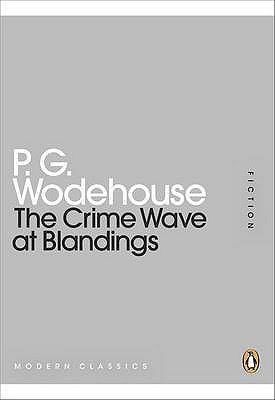
PG Wodehouse's first crime novel or short story? Well, not exactly. But what it is (again and again) is Wodehouse's genius in conveying a small world and expanding that world to the reader in such a hysterical manner. I started reading this book on the plane trip to Los Angeles, and now just finished reading it. Even in my jet-lag position, I can see his world makes some sort of sense. But Wodehouse is such a brilliant writer. His sentence structures are incredible, and the way he just piles one narrative after another - really he must be the original figure for the screw-ball comedy. Boris Vian loved his work, and so do I!
Published on March 29, 2013 18:04
"Maki 2" by Maki Asakawa
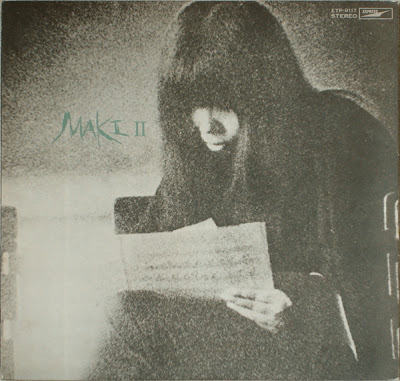
The first time I read the name "Maki" was at a record store in Shibuya Tokyo. The cover of her album "Maki 2" drew me in. I knew by the graphics that the album was either folk, jazz, or somewhere in between. The third category is it.
Beautifully almost baroque/jazz like arrangements surround her earthy vocals. She sort of reminds me of Joni Mitchell, if she was more of a jazz singer, but I actually like Maki's take on that type of jazz much better than Mitchell's. Plus the fact that she is associated with the great playwright/filmmaker Shuji Terayama is a big plus for me as well. Without a doubt I am going to track down her other albums. This one I believe was recorded in the early 1970's. Hardcore Shinjuku pop culture!
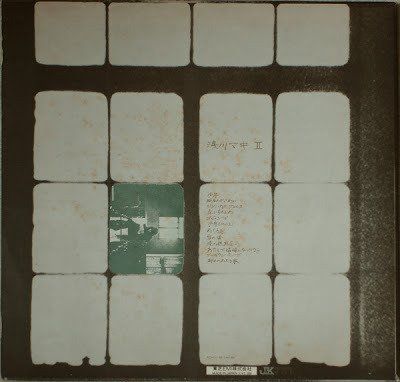
Published on March 29, 2013 09:44
The Outlaws/Joe Meek's "Dream of the West" Vinyl album
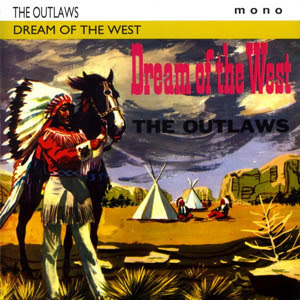
One of the great joys of going to Tokyo is to go on the vinyl hunt, which for me is almost a Situationist walk around the city. The maps I bring with me to Tokyo is usually useless, because a lot of the streets don't have names. Also Tokyo is very much like a maze. It makes sense the longer you are there, but when you first get to town, it like "oh god, where, what, and why?"
I went to Reco Fan in Shibuya and found some great records. For whatever reason it seems (at least this trip to the store) an outlet for Joe Meek recordings on vinyl. It is here where I found my beloved vinyl copy of the Outlaws "Dream of the West" album.
Islington bound Meek takes his imagination out to the wild west and came up with this beauty of an album. His usual back-up band for Mike Berry recordings, Meek wrote all the songs on this album under the name of "Robert Duke." And on top of that he wrote the liner notes as well. Giving almost pulpy narratives on each track. I think the beauty of "Dream of the West" is that its not real, but comes from movie Westerns that Meek absorbed from his childhood and beyond. All the classic iconic images and sounds are on this album, but re-imagined by Joe Meek.
Published on March 29, 2013 09:22
March 27, 2013
Sparks-Tastic by Tosh Berman.... Soon!
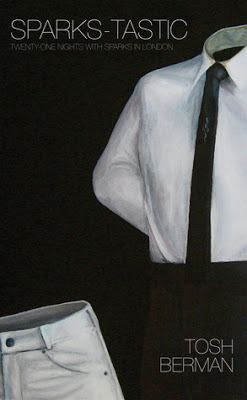
COMING MAY 14TH FROM RARE BIRD BOOKS!
SPARKS-TASTIC: TWENTY-ONE NIGHTS IN LONDON WITH SPARKS
by Tosh Berman
In 2008, Tosh Berman—author and publisher of TamTam Books—got on a plane with a single motive: "Sparks Spectacular." It had been announced that the band Sparks would perform all twenty-one of their albums in a succession of twenty-one nights in London...a monumental experience for any Sparks fanatic. Part travel journal, part personal memoir, Berman takes us through the streets of London and Paris, observing both cities' history and culture through the eye of an obsessive Sparks fan's lens. Including album-by-album reviews of all twenty-one albums and beyond, Sparks-Tastic defines a place and time in music history that's too defining to be ignored.
(A Barnacle Book)
Published on March 27, 2013 18:51
Images of Mt Fuji (Homage to Osamu Dazai and his short story "One Hundred Views Of Mount Fuji")
Published on March 27, 2013 17:26



